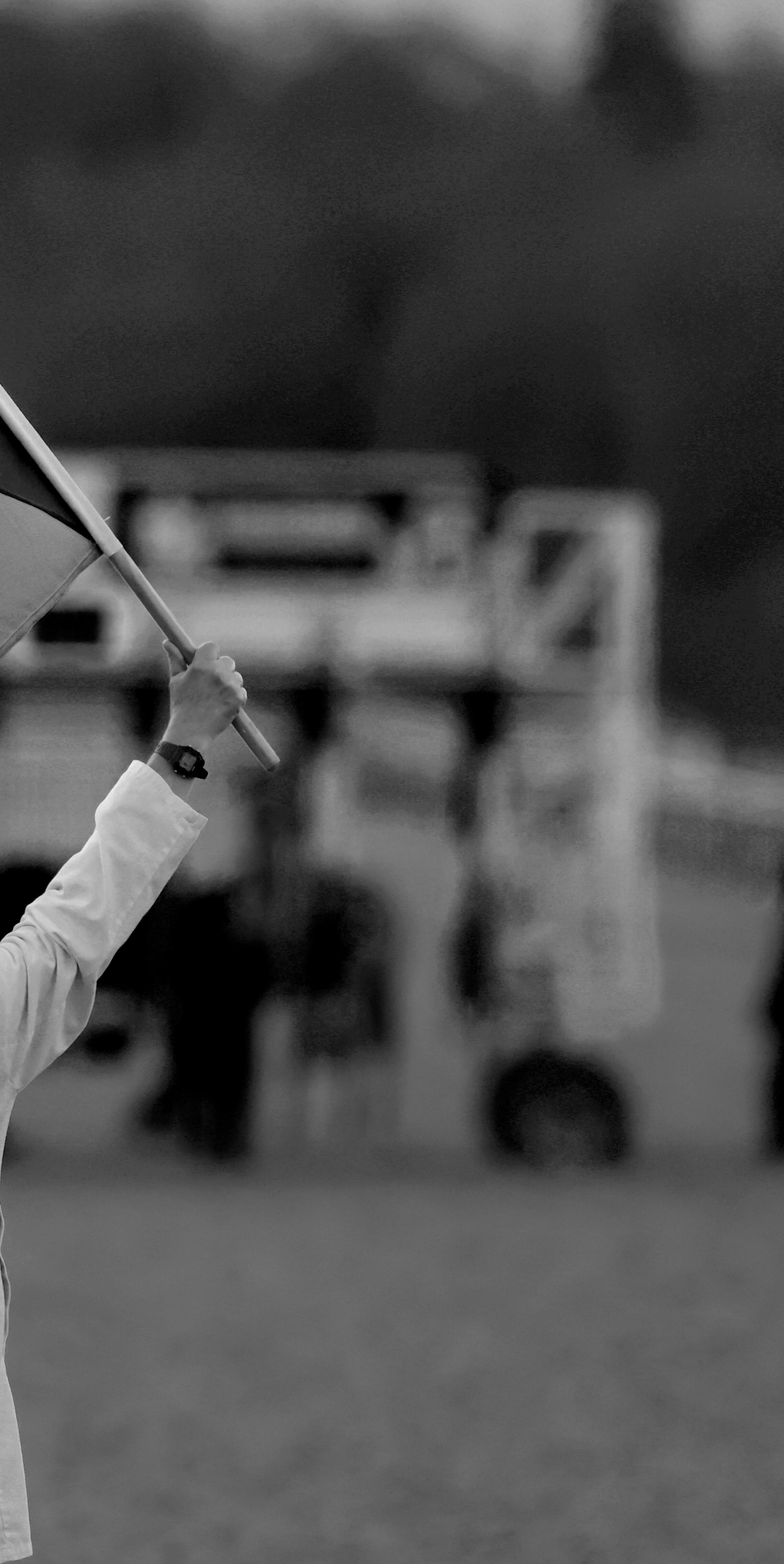KEEPING ON TRACK

365 DAYS IN THE ROA



365 DAYS IN THE ROA

The Coronavirus pandemic and associated extended quarantine provisions led to the postponement of the ROA Annual General Meeting originally scheduled to take place on 29th June 2021.
Notice is therefore given that the 77th Annual General Meeting of the Racehorse Owners Association Limited (the “Company”) will be held on Wednesday 1st September at 12.00 for the following purposes:
To receive by way of Ordinary Resolution, the co-option to the Board of Ken McGarrity, Khalid Almudhaf and Charlie Liverton, for the coming year.
To receive by way of Ordinary Resolution, the results of the Election to fill vacancies on the Board.
To confirm and adopt, by way of Ordinary Resolution, the Report and Financial Statements for the year ended 31st March 2021.
To appoint, by way of Ordinary Resolution, RSM UK Audit LLP auditors in accordance with Section 485 of the Companies Act 2006.
To authorise, by way of Ordinary Resolution, the ROA Board to fix the renumeration of the Auditors.
To approve, by way of Special Resolution, that with effect from the conclusion of the meeting the draft Articles of Association in the form available at www.roa.co.uk/articles to this Annual General Meeting notice be adopted as the articles of association of the Company in substitution for, and to the exclusion of, the Company’s existing Articles of Association (including the relevant provisions of the memorandum of association that would otherwise be treated as provisions of the articles under section 28 of the Companies Act 2006).
Charlie Liverton
Chief Executive Racehorse Owners Association
12th August 2021
Registered Office: 12 Forbury Road, Reading, Berkshire, RG1 1SB
Registered in England No 398604
Please direct any general queries via email to info@roa.co.uk or by phone on 01183 385680
My first full year as President was not the year any of us expected. Racing has faced a challenging year that has posed significant questions about its structure, finances and future. The ROA has been at the heart of these debates representing all owners and we will continue this crucial representation over the coming years.
am extremely grateful to all the members of the ROA Board, our Chief Executive, Charlie Liverton, and the rest of the ROA Team for contributing so impressively during this exceptional year. Charlie and his team have led this organisation and its members through an everchanging landscape of lockdowns, restrictions and re-openings, fighting for the best outcomes for owners at every turn. It has all been done unflinchingly and with a consistent focus on the bigger picture.
Building on their work throughout the year, my focus has been on bringing the owners voice to bear across the sport’s leadership groups and committees to ensure that owners are recognised for their contribution and properly represented and rewarded in the future. I have also been working alongside the Horsemen’s Group, the BHA and the Racecourse Association to bring the sport’s participants closer in order to secure the sport’s future.
In general, we have seen significant steps, collaborating with the sport’s other organisations on considerable structural issues such as the Levy reform, prize-money and corporate governance.
The foremost issue for the sport is prize-money levels. It is the focal point of how owners are rewarded for their investment. I have devoted substantial time and effort into various initiatives to protect and grow prize-money, either directly or by generating revenue growth. In particular, increased Levy contributions achieved by reforming the way it is collected, and initiatives to make our racing product more attractive have both been, and will continue to be, priorities. However, increased inward investment will only benefit Owners if there are sensible and robust distribution agreements in place that guarantee prizemoney levels.
Finding common ground amongst all participants has been no easy task. The conversations and negotiations around new commercial agreements continue and are moving forward. There has been progress and, with Racecourse businesses returning to something like normality, we hope to convert the discussions into a substantive agreement.
The proposals around Levy reform have seen a cross industry working group formed, which has made real progress around what proposition would suit Racing’s interests best. The Levy, with its clearly defined parameters, is much more aligned to the Sport’s participants than the commercial world of Racecourse businesses. It has funded the majority of prize-money throughout the year and increases to this source of funding are a priority going forward.
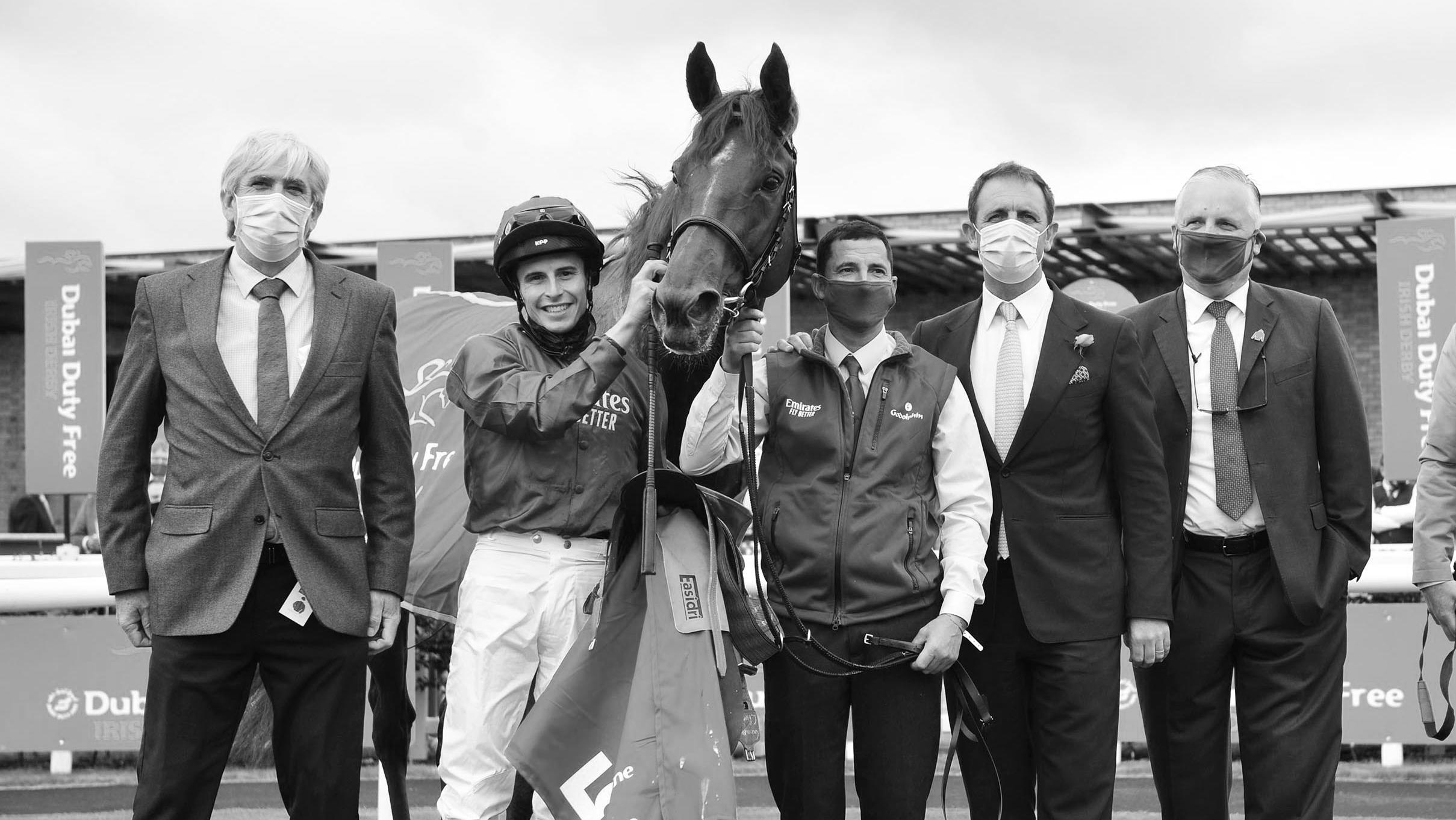

Revenues from gambling are of vital importance and require attention as we head into 2022. Whilst political headwinds are always difficult to negotiate, the Government’s ongoing Review of the Gambling Act, the Government’s promised Levy review and potential reform of the Levy across both overseas bets and how it is calculated, all present a real opportunity to increase funding to the benefit of all participants over the coming year.
Elsewhere, the ROA has made good progress on its own corporate governance and a review has been completed with a series of progressive and much needed outputs which will be adopted, subject to approval, to bring the Association up to speed in this crucial area.
The first steps from this review’s recommendations have been taken already in our transition to a skills-based board to broaden experience and representation. The recent elections of Philip Davies MP, Mouse Hamilton-Fairley and Celia Djivanovic, bring a variety of experience and professional backgrounds to the Board and am looking forward to working with them.
This year has been a wakeup call for the industry as to what can happen if owners and the sport’s participants are not put front and centre. We have done well to focus minds. We will ensure that the ROA continues, across all of its communications and projects, to guide our sport’s leadership to improve ownership – as an experience and as an investment - and protect the future of racing.
There are significant challenges in the recovery still to come, but the big questions facing the sport are also an opportunity. As we look to 2022, we will be focussed, as an organisation, on delivering positive change for our members and all owners whether its tweaks to race days or addressing the commercial structures that govern our sport.
The coming year will undoubtedly present challenges, but with our excellent team in place and the new initiatives we have launched, it promises to be an even more interesting one than the last.
Charlie Parker
In one of racing’s most challenging periods in living memory, the ROA has continued to work collaboratively with industry stakeholders to represent and deliver for our members and support the wider work of the industry. This has enabled us to shape and drive the sport’s recovery on behalf of all owners invested in British racing. In a year that has had so much gloom, I am delighted that this organisation, both the Board and its staff, have continued to keep ownership at the core of the sport’s response and be the voice of ownership across the industry and beyond. Central to this was the delivery of our Ownership COVID Action Plan. Working with racing’s other stakeholders, we created recovery initiatives around owners, emphasising their contribution and the need to have a plan to retain and attract owners.
Alongside the ever changing landscape of restrictions we continued to focus on what matters to owners. Those priorities are borne out in our strategy document, setting out a long term vision to address the issues owners care about most. am delighted that, in spite of the challenges of COVID, we have maintained focus on our bigger picture objectives to deliver racing’s future, inspire ownership, elevate the experience and collaborate for the good of the sport.
Our industry ownership strategy, whilst frustratingly disrupted by COVID, has put the voice of owners at the forefront of racing and supported interest in ownership through the pandemic, whilst pushing awareness of both the value of owners and benefits of owning horses. The survey at the core of the work has provided the sport with deep insight into what motivates owners, across the spectrum, and will hopefully inform more considered initiatives from the sport to retain and attract owners.
The result of the ongoing strategy and the additional strategic industry work has seen new owners continue to join the sport. Average field sizes are up. Ownership churn rates are falling. Horses in training have remained level despite the pandemic. These are positive results and a testament to owners who love our sport.
Prize-money remains the key issue for owners entering and leaving the sport and, with international jurisdictions continuing to invest in race purses, we continue to push for increased returns to owners as a priority for protection during the pandemic. Protecting prize-money levels was critical and we thank the Levy Board for their significant support throughout the year with their increased contributions in the face of falling executive contributions from Racecourses as a result of the loss of income from crowds. We have also continued our work across the sport on new commercial agreements and Levy Reform. So too have we worked to rebalance prize-money distribution, something that many owners have voiced their support of over the past few years. This change to the distribution model sees more owners
receive a better return on their investment through the new Prize-money Distribution mechanism, with Pattern and nonPattern races now more aligned, which has seen an increase in median earnings by 13%. All through COVID we have sought to ensure owners are being rewarded, on and off the racecourse; but we know there is still far more to do on this to grow the sport in future and we recognise fully the challenges that owners have faced throughout the past 12 months.
We also know the raceday experience, and the all-important interaction with horses and trainers, has suffered during the course of the year with significant variation occurring with different interpretations of the rules at different courses and regional variation. Again, we have worked hard to voice owners concerns and ensure some minimum standards for owners on course. Both this and interaction has not always been straightforward, but the team have worked tirelessly to put owners at the top of the agenda.
Welfare also continues to both be a challenge to the future of our sport but also an area where I believe, with the right attitude and application, we can inspire wider involvement, interest and ownership as well as reputational benefit.
This year we have continued, as part of our role on the Horse Welfare Board as well as feedback from members, to push for real structural reform that further improves outcomes for thoroughbred horses in the UK. The ROA led the Aftercare Funding Review, undertaken this year as part of the HWB’s A Life Well Lived strategy, and made a series of recommendations, supported by the ROA and wider industry stakeholder bodies, on improving aftercare management and transparency, from traceability to funding structures.
I am confident that, as we move forward, these initiatives will continue to improve and track outcomes and show our sport in the best possible light to both Government and the wider public. The ROA also delivered the Racehorse Relief Fund, securing funding from the Racing Foundation, in order to ensure that no horse suffered hardship as a result of the pandemic.
As we continue in the post-restrictions world, our goal will be to continue putting the owner considerations first in racing and building on a platform to promote the voice of the owners and deliver change on the things owners care about most: Prizemoney, Experience and Welfare.
Also core to our work on racing’s future is a programme of modernisation, both of corporate governance at the ROA and in the sport, as well as assessing the fitness of the sport’s commercial structures.
I am incredibly proud of the lead the ROA has taken on corporate governance, to open itself up to a significant review of its practices and identify ways to improve how the organisation is structured and how we represent our
members to achieve the best outcomes for them. The recently concluded review has a number of recommendations we are carrying forward, including a new skills-based board, independent directors and further improving transparency. All of this, we believe, will continue to support the growth and modernisation of the organisation and prepare it for the future.
Operationally, it is another successful year for the ROA. What could have been financially difficult has been successfully navigated and we remain on a strong footing to continue expanding our support for members alongside our other operations. That is evident in moving the office during the pandemic out of London and in to Reading in order to reduce costs and provide a working environment that will see more time spent on racecourses and in training yards talking to owners week in, week out. Our recent acquisition of the Owner Breeder magazine is something I have long advocated and I am sure will be a fantastic addition to the business. In time, the acquisition will provide a strong base from which we can develop a holistic communications strategy, online and in print, across social media, daily, weekly and monthly. We will also look to grow its readership across digital and print channels with bigger, better thought-provoking opinion, debate and news that addresses the whole racing community.
I am honoured to work with an executive team who have dealt
with the constant challenges of COVID and delivered for our members. With a small and dedicated team all of whom have had to adapt to new working arrangements and endured personal challenges, they have continued to support our membership and be their voice on and off the racecourse. My deepest appreciation goes to them all for their dedication and support over the past 12 months.
Finally, my sincere thanks to the Board for their valued support during these turbulent past 12 months. In what has been a trying year they have supported the business and the wider industry and helped to drive through some really important initiatives – not least the ROA Corporate Governance review. As owners themselves they have personally felt the impact of the past 12 months and therefore contributed hugely to the issues we have all faced. We will continue to be ambitious in our objectives and hope to be able to kick on in 2022 to bring about real change for owners on the issues closest to their hearts.
I look forward to seeing you all on a racecourse soon. Charlie Liverton

that provides outstanding
of
for owners and helps bring
and racing to life.
We want to shape a modern sport with a bright future.
● Produce and deliver exceptional membership benefits that both retains current and attracts new members
● Represent the interests of owners through rigorous advocacy within the sport and in wider society
● Promote ownership and racing – its joys and benefits – to current and future generations
● Secure the future of the sport through the modernisation of ownership, standards and funding
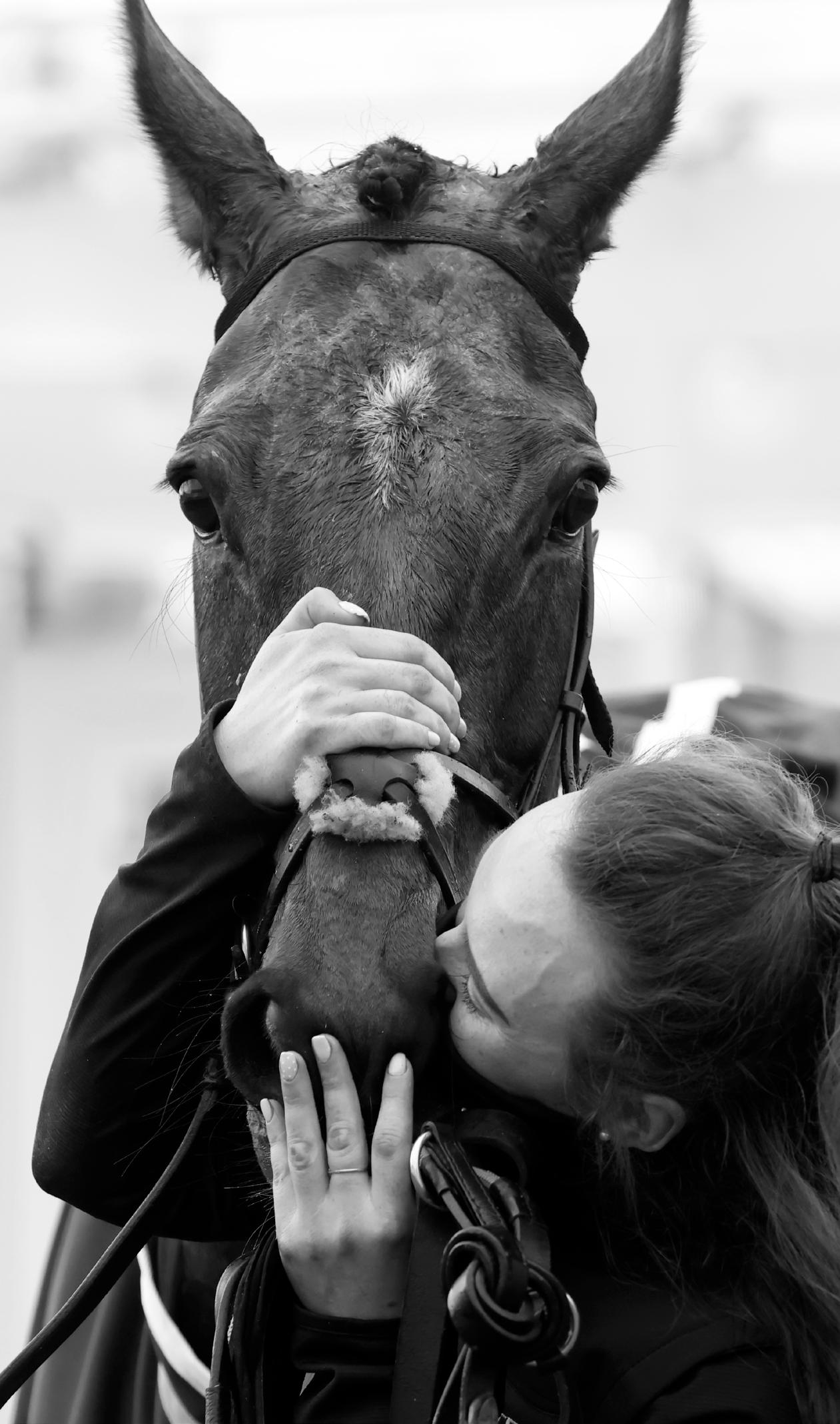
Throughout the year the ROA Team have completed a number of initiatives that have delivered against the stated goals:
The ROA Corporate Governance Review was approved by the Board in October 2020 and has been undertaken to identify areas where the organisation could improve its corporate governance in order to support the delivery of key strategic initiatives and to improve efficiency and effectiveness. The Review is part of a wider piece of work to support the broader modernisation of the sport and ensure that its practices meet modern standards of corporate governance and therefore, deliver the right decisions for the future of the sport.
Prize-money review
At the highest level, the ROA and Horsemen’s Group continue to work through new commercial agreements with racecourses to improve financial returns and get a better share of media rights income to the owners and participants who contribute so much. The ROA continues to drive forward changes and improvements and in early 2021 announced new changes in prize-money distribution that improve median earnings by 13% for owners, trainers and stable staff, ensuring a better return on investment in non-Pattern races.
Levy review
The ROA continues to work with the industry to assess ways to improve racing’s finances and grow revenues for all the sport’s participants. Levy reform has been identified by the sport’s leadership as a key part of future revenue growth. The ROA has been supporting the sport’s work with the Government and bookmakers over the past year regarding changes to the levy that can bring short term security to the sport’s finances and provide a more sustainable, long-term solution for racing.
In December 2020, the Government committed to bringing forward the Levy Review to 2021 as a result of an urgent review request submitted by the sport within its COVID-19 Recovery plan. Since then, the ROA has worked, as part of the BHA Steering Group on Levy reform.
Over 2021/2022, as well as the recommendations from the Gambling Act Review, we expect to see the proposals from Government on Levy reform.
Welfare project
The ROA, with the support of the Racing Foundation and the Horse Welfare board, led the review into the funding and management of the racehorse aftercare sector with clear recommendations aimed at further improving outcomes for racehorses and equine welfare.
In October 2020 the ROA, working in partnership with the Racing Foundation, supported the launch of the Racehorse Relief Fund as part of the British Racing Industry’s response to the COVID Crisis. The scheme has been established to provide a financial lifeline for those horses who’s owners may have been financially impacted by the pandemic, to remain on licensed yards whilst their future racing career was established.
Whip consultation
The whip consultation opened on 1st July 2021, and is part of the recommendations made in the Horse Welfare Strategy. As the sport modernises and debates around welfare continue, it is of vital importance that we, as a sport, take control of our narrative around high profile public concerns to ensure we protect the reputation and future of our sport.
Shared ownership
The ROA in collaboration with the BHA assisted in the Shared Ownership Regulatory review in 2020, with the recommendations introduced in May 2021 – this area focused on the rules relating to Syndicates and Racing Clubs, ensuring that the Code of Conduct was aligned to the best practices across the industry. The ROA has created clear and concise template agreements for both Syndicate and Racing Clubs, which promote the transparency and rules agreed as part of the Regulatory Review.
In addition, the ROA continues to work with Great British Racing to promote and support shared ownership within and beyond the industry.
Racing behind closed doors
The ROA Team have worked tirelessly to promote the experience both on and off the course by bringing to our owners the latest industry and racing news each day through our daily Inside Track communication. The communication includes ROA Member news, wider industry new and also the daily racecards, to ensure that our owners continue to feel at the heart of the sport they love. The ROA is committed to supporting owners and ensure their views are listened to across the Industry.
Acquisition and promotion
In 2021, focusing around the major festivals, the ROA worked with racecourses and broadcasters to highlights the benefits of ROA membership, promoting greater awareness and telling the many incredible ownership stories to a broad audience.
The Horse Welfare Board, with the support of the Racing Foundation, asked the ROA to lead a report into the aftercare for any horse bred for racing. From September 2020 to its publication in March 2021, the ROA’s team spearheaded an industry-wide group in a robust and diligent process of consultation, review and recommendation. The result of which was the “Aftercare Funding Review”.

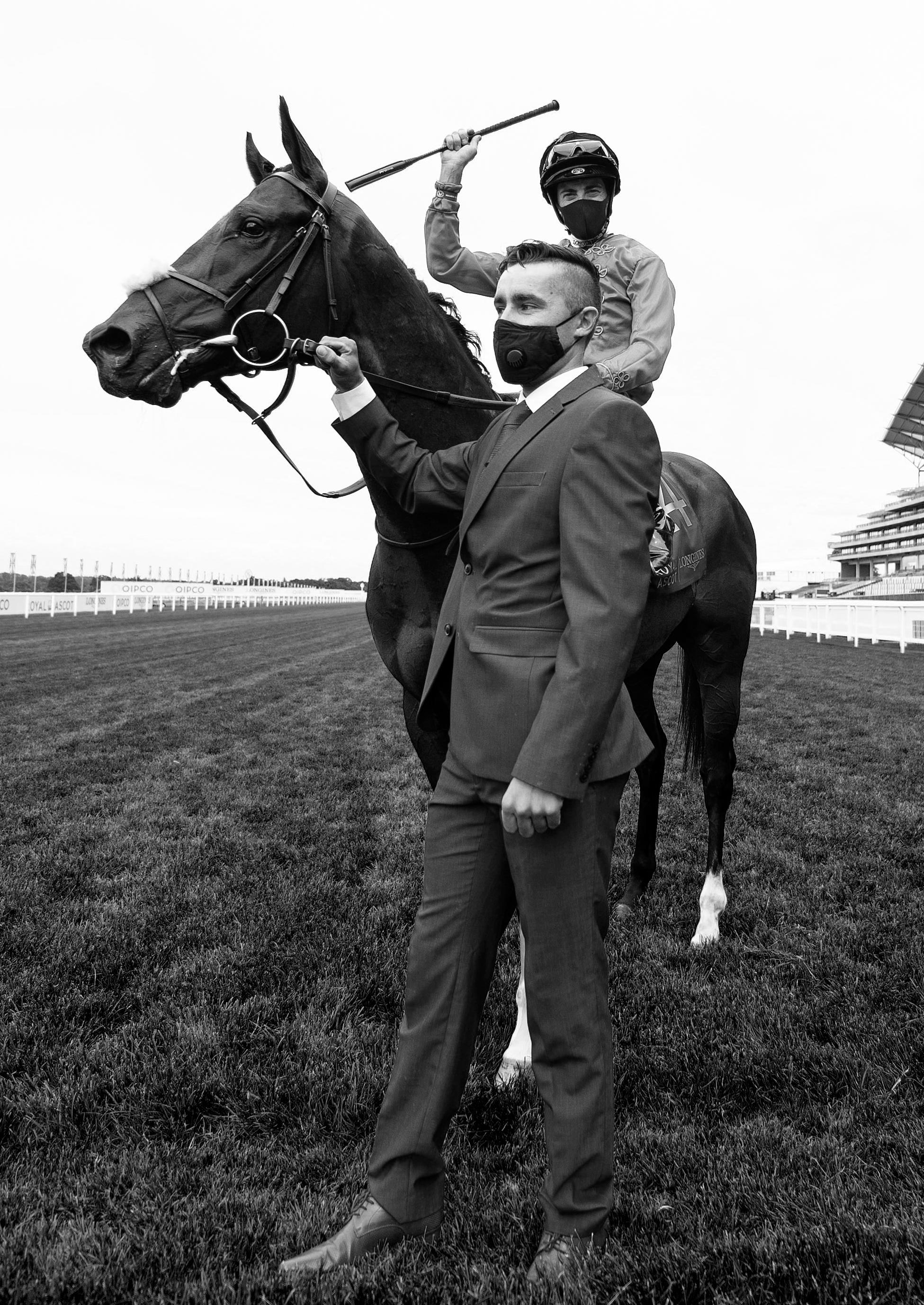
The ROA is an investor in the Tote, alongside a host of familiar owners and breeders in British racing.
For the second year, we are grateful to the Tote for supporting the ROA Owner Sponsorship Scheme with 1,780 horses included in the scheme in 2020.
It’s been another busy year for the UK Tote Group following their acquisition of the 90-year old institution in October 2019.
Here’s what the Tote has been focusing on over the last year.
Like all of us, 2020 was not the year the Tote had envisaged it would be. With no racing from the middle of March to June, and virtually no spectators on racecourses for over 12 months, the Tote accelerated the development of its digital proposition and international partnerships with other Tote operators.
Despite there being virtually no on course betting activity since March 2020, the Tote has continued its agreement to contribute a minimum of £50 million to racecourses over 7 years, highlighting the company’s commitment to the sport.
With a team that has doubled to 150 people, including over 40 engineers, the Tote has launched a number of new innovations for customers on tote.co.uk and the Tote App.
Innovations have focused on improving the value of the pool betting proposition and engaging with a broad base of racing fans:
● Tote Guarantee This ensures the Tote Win price will always match the industry Starting Price (SP) or exceed it if the pool price is bigger on all UK and Irish racing. This means Tote customers benefit from the bigger prices the pool can produce without ever losing out.
● Tote+: Tote Plus provides all customers betting directly with the Tote a 10% dividend enhancement. With Tote+ in place, the pool Win price beats the Industry SP about 60% of the time. On average, the Tote is one point better in value (i.e. if a customer was getting 7/1, the Tote is now paying 8/1).
● Tote Ten to Follow: The Tote brought back Ten to Follow in a new digital format for the 2019/20 jumps season. It is now in its fourth season with over £500,000 having been invested in prizes. Ten to Follow continues to be a very popular game engaging racing fans throughout the season, as reflected by Robert Lynch, who won over £104,000 in the 2020/21 jumps season: “You could have £50 on a horse and within three minutes your money is gone, but with the Ten To Follow, you pay your fiver and you’ve got from November to April to keep you entertained.”
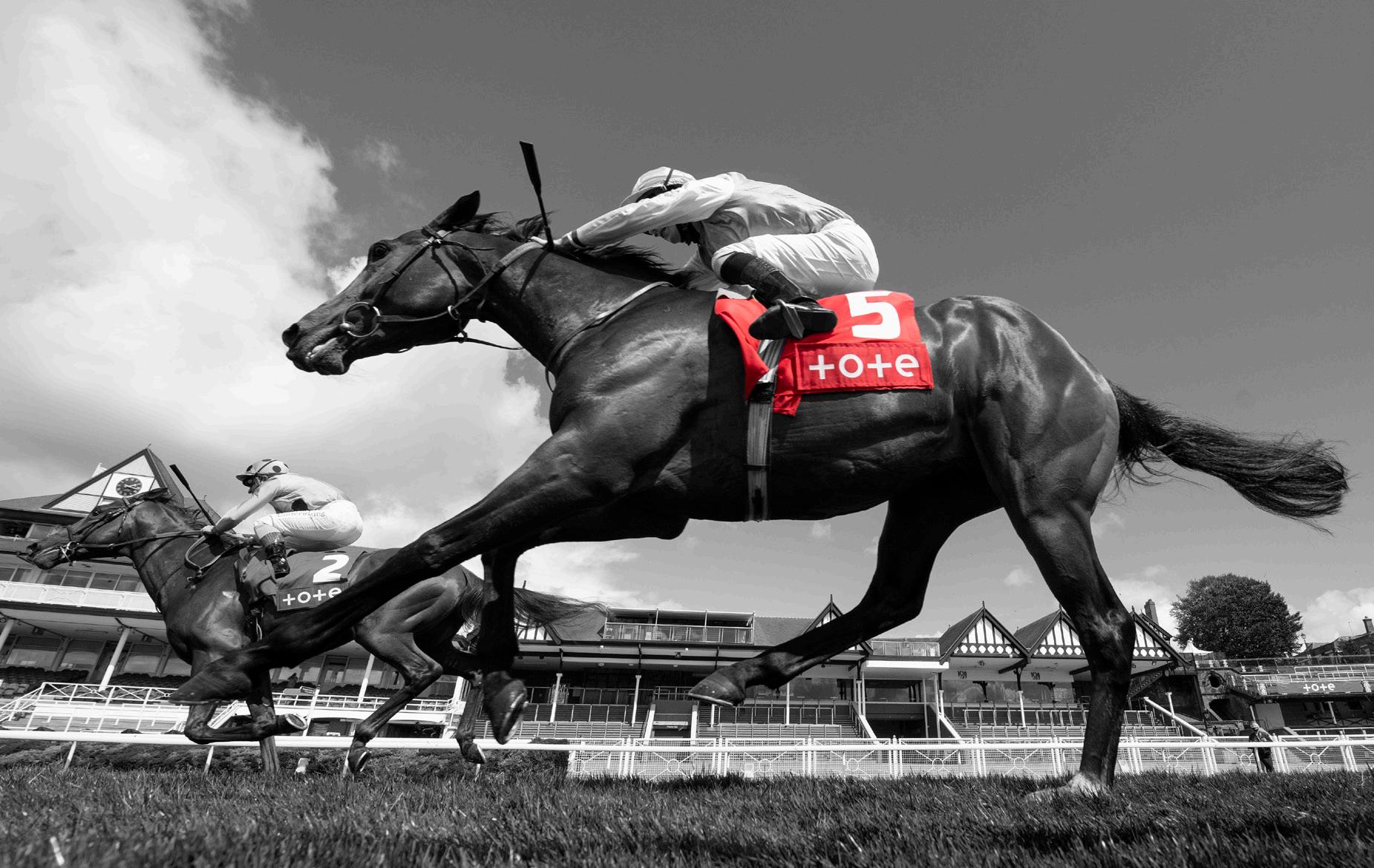
The Tote has developed some important international partnerships which will be key to future growth:
● Tote Ireland: One of the most significant developments of 2020 was the Tote’s agreement to a strategic alliance with Tote Ireland. This ensures stronger liquidity in UK and Irish pools across a single digital platform, bringing together pool betting at 85 racecourses and hosting over 2,000 race meetings a year, including 49 Group 1 flat races and 77 Grade 1 jump races.
● Commingling with the PMU: Since Cheltenham 2021, the PMU have started commingling into selected British meetings, further boosting liquidity in pools.
● World Pool: This is one of the most exciting projects for international horseracing and will see World Pool events hosted on 17 of Britain and Ireland’s leading race meetings in 2021. World Pool has combined global pool betting liquidity and is a huge opportunity for British racing to grow betting on, and showcase the sport, to a global audience.
Winfried Engelbrecht-Bresges, Chief Executive Officer of the Hong Kong Jockey Club, said: “This underscores another important achievement made by the Hong Kong Jockey Club and the Tote, as well as their partners across British racing in ensuring racing fans around the world can bet on some of the best days in the flat racing calendar via World Pool. The extra World Pool days across the summer will also strengthen our efforts in effectively addressing the illegal gambling issues in Hong Kong as it will help to prevent illegal and offshore bookmakers from luring Hong Kong residents to bet on overseas races during the off-season. We look forward to continuing to work with all in British racing to refine, develop and promote World Pool in the months and years ahead.”
● World Tote Association: The Tote is a founding member of the newly created World Tote Association whose members have a combined turnover of over €25 billion and are working collectively to showcase the strengths and advantages of pool betting for global horseracing.
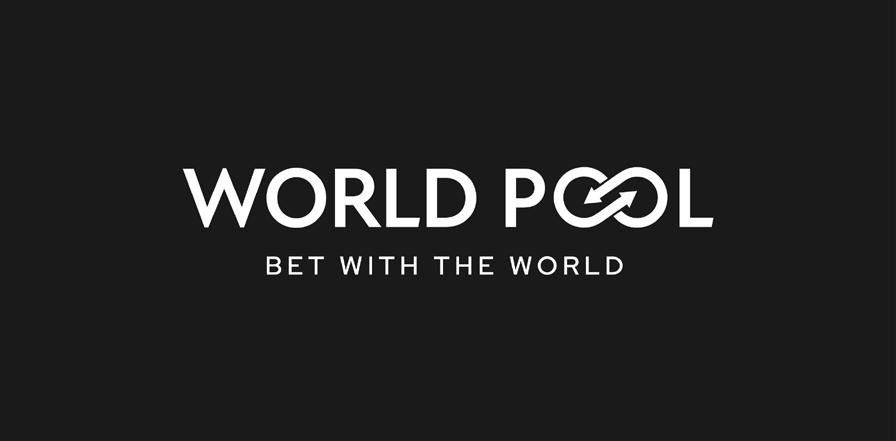
In what is a challenging time for everyone involved in British racing, it is positive to see the Tote going from strength to strength.
The ROA are delighted that Tote continues to support the Owner Sponsorship Scheme, with logos being carried by over 1800 ROA Members horses in 2021. This is a huge benefit to our members and enables the recovery of VAT on racing related expenditure. We look forward to our continued partnership.
60%
% of race Tote plus has beaten SP since launch
80%
% of races Trifecta+ has beaten Tricast since launch
6,000
Number of bets the Tote platform can process per second
80+
Number of Tote team in Engineering, Technology, Product and Data
GLOBAL REACH
15 140+
Global partners the Tote commingles with
Number of global racecourses Tote customers can bet on
Prize-money and its equitable distribution continues to be the main priority for the ROA, ensuring that owners are fairly rewarded for their contribution to the sport of racing. The ROA has always sought to protect prize-money levels and in recent years, working with the members of the Horsemen’s Group and industry stakeholders, promoted and developed innovative schemes to boost financial returns across the sport, for all owners.
With COVID and the suspension of racing, we expect prize-money to be impacted next year. However, at the ROA and across the sport’s participants, we wish to be clear that we do not accept the fall in prize-money nor the lack of executive contributions by racecourses as a long term option.
Such a fall severely threatens our sport and its future. Owners have been quite clear that prize-money and its distribution is the main reason they retain their interest in racehorse ownership.
The ROA is already working to ensure prize-money levels not only return to pre-COVID levels, but that we put in place long-term structures to redress previous commercial imbalances. Going forward we want to see racing’s income permanently, fairly and transparently distributed amongst participants, rewarding owners properly and helping participants and other stakeholders collaborate effectively for the betterment of our sport.
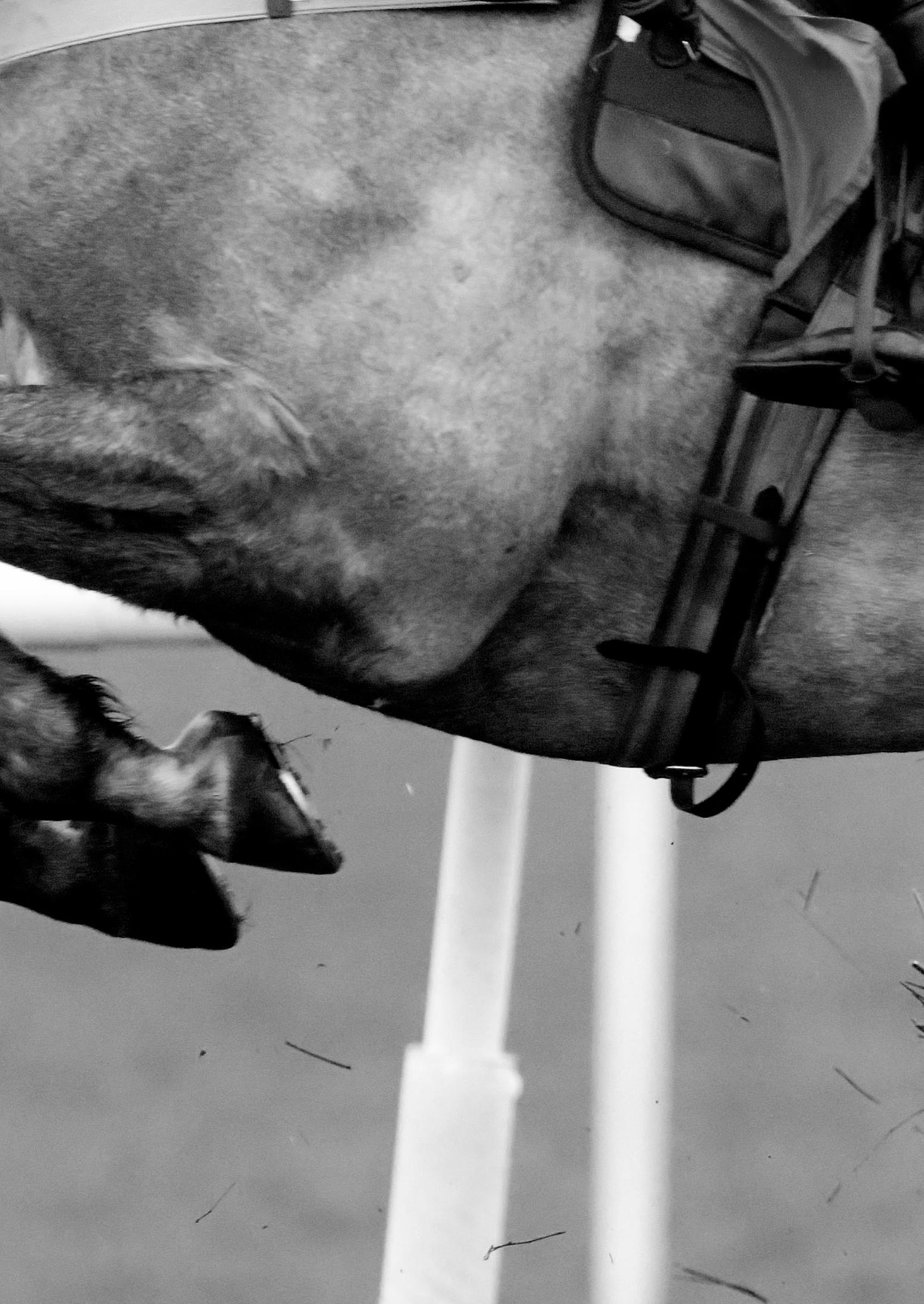
The directors present their annual report and financial statements for the year ended 31 March 2021.
Principal activities
The principal activity of the Association continued to be that of promoting and supporting the interests of racehorse owners in Great Britain funded through membership subscriptions.
Directors
The directors who held office during the year and up to the date of signature of the financial statements were as follows:
S Astaire
N G Cooper CBE (Resigned 3 September 2020)
Y Dixon
C J Djivanovic
D P Duffy (Resigned 3 September 2020)
R T Goff
R S Hoskins
C M Parker
A D Spence
C Wright CBE
G Kelleway (Appointed 3 September 2020)
Auditor
RSM UK Audit LLP have indicated their willingness to be reappointed for another term and appropriate arrangements have been put in place for them to be deemed reappointed as auditors in the absence of an Annual General Meeting.
Statement of disclosure to auditor
So far as each person who was a director at the date of approving this report is aware, there is no relevant audit information of which the company’s auditor is unaware. Additionally, each director has taken all the necessary steps that they ought to have taken as a director in order to make themselves aware of all relevant audit information and to establish that the company’s auditor is aware of that information.
Small companies exemption
This report has been prepared in accordance with the provisions applicable to companies entitled to the small companies exemption.
On behalf of the board
C M Parker Director
24th May 2021
Directors’ Responsibilities Statement for the year ended 31 March 2021
The directors are responsible for preparing the Directors’ Report and the financial statements in accordance with applicable law and regulations
Company law requires the directors to prepare financial statements for each financial year. Under that law
the directors have elected to prepare the financial statements in accordance with United Kingdom Generally Accepted Accounting Practice (United Kingdom Accounting Standards and applicable law). Under
company law the directors must not approve the financial statements unless they are satisfied that they give a true and fair view of the state of affairs of the company and of the surplus or deficit of the company for that period.
In preparing these financial statements, the directors are required to:
● select suitable accounting policies and then apply them consistently;
● make judgements and accounting estimates that are reasonable and prudent;
● prepare the financial statements on the going concern basis unless it is inappropriate to presume that the company will continue in business.
The directors are responsible for keeping adequate accounting records that are sufficient to show and explain the company’s transactions and disclose with reasonable accuracy at any time the financial position of the company and enable them to ensure that the financial statements comply with the Companies Act 2006. They are also responsible for safeguarding the assets of the company and hence for taking reasonable steps for the prevention and detection of fraud and other irregularities.
Opinion
We have audited the financial statements of The Racehorse Owners Association Limited (the ‘company’) for the year ended 31 March 2021 which comprise the statement of comprehensive income, the statement of financial position and notes to the financial statements, including significant accounting policies. The financial reporting framework that has been applied in their preparation is applicable law and United Kingdom Accounting Standards, including FRS 102 “The Financial Reporting Standard applicable in the UK and Republic of Ireland” (United Kingdom Generally Accepted Accounting Practice).
In our opinion, the financial statements:
● give a true and fair view of the state of the company’s affairs as at 31 March 2021 and of its surplus for the year then ended;
● have been properly prepared in accordance with United Kingdom Generally Accepted Accounting Practice;
● have been prepared in accordance with the requirements of the Companies Act 2006.
Basis for opinion
We conducted our audit in accordance with International Standards on Auditing (UK) (ISAs (UK)) and applicable law. Our responsibilities under those standards are further described in the Auditor’s responsibilities for the audit of the financial statements section of our report. We are independent of the company in accordance with the ethical requirements that are relevant to our audit of the financial statements in the UK, including the FRC’s Ethical Standard, and we have fulfilled our other ethical responsibilities in accordance with
these requirements. We believe that the audit evidence we have obtained is sufficient and appropriate to provide a basis for our opinion in accordance with these requirements. We believe that the audit evidence we have obtained is sufficient and appropriate to provide a basis for our opinion.
Conclusions relating to going concern
In auditing the financial statements, we have concluded that the directors’ use of the going concern basis of accounting in the preparation of the financial statements is appropriate.
Based on the work we have performed, we have not identified any material uncertainties relating to events or conditions that, individually or collectively, may cast significant doubt on the company’s ability to continue as a going concern for a period of at least twelve months from when the financial statements are authorised for issue.
Our responsibilities and the responsibilities of the directors with respect to going concern are described in the relevant sections of this report.
Other information
The other information comprises the information included in the annual report, other than the financial statements and our auditor’s report thereon. The directors are responsible for the other information contained within the annual report. Our opinion on the financial statements does not cover the other information and, except to the extent otherwise explicitly stated in our report, we do not express any form of assurance conclusion thereon.
Our responsibility is to read the other information and, in doing so, consider whether the other information is materially inconsistent with the financial statements or our knowledge obtained in the course of the audit or otherwise appears to be materially misstated. If we identify such material inconsistencies or apparent material misstatements, we are required to determine whether this gives rise to a material misstatement in the financial statements themselves. If, based on the work we have performed, we conclude that there is a material misstatement of this other information, we are required to report that fact.
We have nothing to report in this regard.
Opinions on other matters prescribed by the Companies Act 2006
In our opinion, based on the work undertaken in the course of the audit:
● the information given in the directors’ report for the financial year for which the financial statements are prepared is consistent with the financial statements; and
● the directors’ report has been prepared in accordance with applicable legal requirements.
Matters on which we are required to report by exception
In the light of the knowledge and understanding of the company and its environment obtained in the course of the audit, we have not identified material misstatements in the directors’ report.
We have nothing to report in respect of the following matters in relation to which the Companies Act 2006 requires us to report to you if, in our opinion:
● adequate accounting records have not been kept, or returns adequate for our audit have not been received from branches not visited by us; or
● the financial statements are not in agreement with the
accounting records and returns; or
● certain disclosures of directors’ remuneration specified by law are not made; or
● we have not received all the information and explanations we require for our audit; or
● the directors were not entitled to prepare the financial statements in accordance with the small companies regime and take advantage of the small companies exemption from the requirement to prepare a strategic report or in preparing the directors’ report.
Responsibilities of directors
As explained more fully in the directors’ responsibilities statement set out on page 2, the directors are responsible for the preparation of the financial statements and for being satisfied that they give a true and fair view, and for such internal control as the directors determine is necessary to enable the preparation of financial statements that are free from material misstatement, whether due to fraud or error.
In preparing the financial statements, the directors are responsible for assessing the company’s ability to continue as a going concern, disclosing, as applicable, matters related to going concern and using the going concern basis of accounting unless the directors either intend to liquidate the company or to cease operations, or have no realistic alternative but to do so.
Auditor’s responsibilities for the audit of the financial statements
Our objectives are to obtain reasonable assurance about whether the financial statements as a whole are free from material misstatement, whether due to fraud or error, and to issue an auditor’s report that includes our opinion.
Reasonable assurance is a high level of assurance, but is not a guarantee that an audit conducted in accordance with ISAs (UK) will always detect a material misstatement when it exists. Misstatements can arise from fraud or error and are considered material if, individually or in the aggregate, they could reasonably be expected to influence the economic decisions of users taken on the basis of these financial statements.
The extent to which the audit was considered capable of detecting irregularities, including fraud
Irregularities are instances of non-compliance with laws and regulations. The objectives of our audit are to obtain sufficient appropriate audit evidence regarding compliance with laws and regulations that have a direct effect on the determination of material amounts and disclosures in the financial statements, to perform audit procedures to help identify instances of non-compliance with other laws and regulations that may have a material effect on the financial statements, and to respond appropriately to identified or suspected noncompliance with laws and regulations identified during the audit.
In relation to fraud, the objectives of our audit are to identify and assess the risk of material misstatement of the financial statements due to fraud, to obtain sufficient appropriate audit evidence regarding the assessed risks of material misstatement due to fraud through designing and implementing appropriate responses and to respond appropriately to fraud or suspected fraud identified during the audit.
However, it is the primary responsibility of management, with the oversight of those charged with governance, to ensure that the entity’s operations are conducted in accordance with the provisions of laws and regulations and for the prevention and detection of fraud.
In identifying and assessing risks of material misstatement in respect of irregularities, including fraud, the audit engagement team:
● obtained an understanding of the nature of the industry and sector, including the legal and regulatory frameworks that the company operates in and how the company is complying with the legal and regulatory frameworks;
● inquired of management, and those charged with governance, about their own identification and assessment of the risks of irregularities, including any known actual, suspected or alleged instances of fraud;
● discussed matters about non-compliance with laws and regulations and how fraud might occur including assessment of how and where the financial statements may be susceptible to fraud.
As a result of these procedures we consider the most significant laws and regulations that have a direct impact on the financial statements are FRS 102, the Companies Act 2006 and tax compliance regulations. We performed audit procedures to detect non-compliances which may have a material impact on the financial statements which included reviewing financial statement disclosures.
The audit engagement team identified the risk of management override of controls as the area where the financial statements were most susceptible to material misstatement due to fraud. Audit procedures performed included but were not limited to testing manual journal entries and other adjustments and evaluating the business rationale in relation to any significant, unusual transactions and transactions entered into outside the normal course of business.
A further description of our responsibilities for the audit of the financial statements is located on the Financial Reporting Council’s website at: https://www.frc.org.uk/auditors responsibilities This description forms part of our auditor’s report.
Use of our report
This report is made solely to the company’s members, as a body, in accordance with Chapter 3 of Part 16 of the Companies Act 2006. Our audit work has been undertaken so that we might state to the company’s members those matters we are required to state to them in an auditor’s report and for no other purpose. To the fullest extent permitted by law, we do not accept or assume responsibility to anyone other than the company and the company’s members as a body, for our audit work, for this report, or for the opinions we have formed.
for the year ended 31 March 2021
Claire Sutherland (Senior Statutory Auditor)
For and on behalf of RSM UK Audit LLP, Statutory Auditor
Chartered Accountants
Abbotsgate House Hollow Road
Bury St Edmunds Suffolk, IP32 7FA
on (deficit)/surplus
March 2021
were approved
1,313,575 315,929 1,980,232 (1,456,556) 523,676 1,190,907 –
FOR THE YEAR ENDED 31ST MARCH 2021
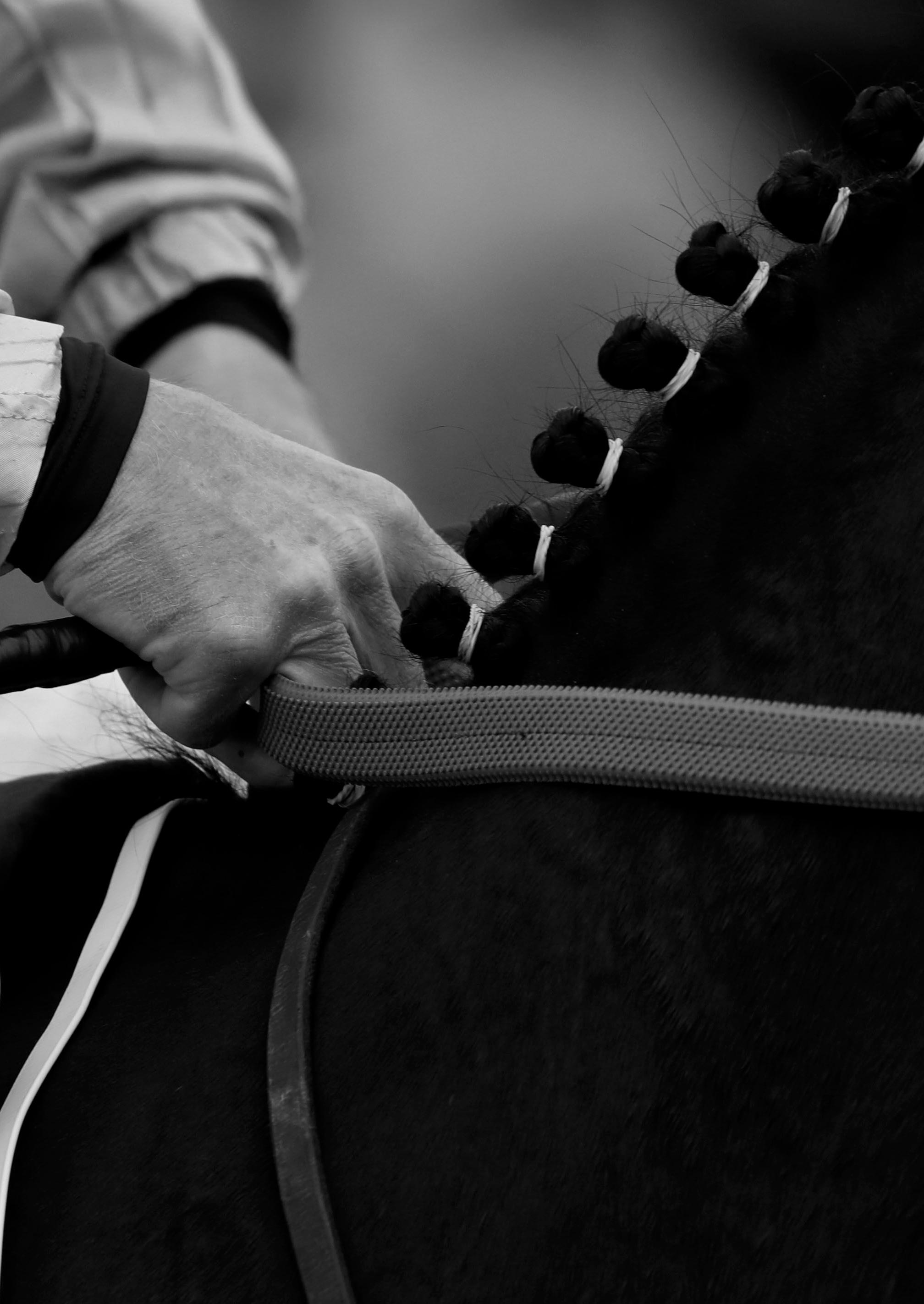
Company information
The Racehorse Owners Association Limited is a private company limited by guarantee and is registered and incorporated in England and Wales. The registered office is 12 Forbury Road, Reading, Berkshire, RG1 1SB.
Accounting convention
These financial statements have been prepared in accordance with FRS 102 “The Financial Reporting Standard applicable in the UK and Republic of Ireland” (“FRS 102”) and the requirements of the Companies Act 2006 as applicable to companies subject to the small companies regime. The disclosure requirements of section 1A of FRS 102 have been applied other than where additional disclosure is required to show a true and fair view.
The financial statements are prepared in sterling, which is the functional currency of the company. Monetary amounts in these financial statements are rounded to the nearest £.
The financial statements have been prepared under the historical cost convention. The principal accounting policies adopted are set out below.
Going concern
The Coronavirus pandemic led the directors to consider and review the company’ status as a going concern, including its financial security, the adequacy of its reserves and the robustness of future financial projections up to September 2022. The ROA continues to make conservative budget projections of the coming year and regularly reviews its income and expenditure. The pandemic has had only a limited impact on the financial position of the company. There is a reasonable level of confidence attached to current projections that do not threaten the solvency of the ROA or its status as a going concern. Current cash resources provide the company with sufficient financial strength to withstand a significant downturn in the coming twelve months and there is presently no indication of such a downturn as incomes in line with expectations and expenditure remains carefully controlled.
Income and expenditure
Income and expenses are included in the financial statements as they become receivable or due.
Grants
Grants relating to revenue are recognised in income on a systematic basis over the period to which the entity recognises the related costs for which the grant is intended to compensate.
Members’ subscriptions
Members’ subscriptions are accounted for on an accruals basis, in compliance with Section 23 of FRS 102. When the company receives subscription income from a member in advance, a liability is recognised of an equal amount. Over the period to which the subscription relates the liability is proportionately reduced and recognised as revenue.
Intangible fixed assets other than goodwill
Intangible assets, including website development costs, are recognised at cost and are subsequently measured at cost less accumulated amortisation and accumulated impairment losses.
Amortisation is recognised so as to write off the cost of assets less their residual values over their useful lives on the following bases:
Software 20% per annum on cost
Tangible fixed assets
Tangible fixed assets are initially measured at cost and subsequently measured at cost, net of depreciation and any impairment losses.
Depreciation is recognised so as to write off the cost of assets less their residual values over their useful lives on the following bases:
Leasehold improvements 10 years straight line Other plant and machinery 20% straight line
Fixed asset investments
Interests in associates are initially measured at cost and subsequently measured at cost less any accumulated impairment losses.
Trade investments are initially measured at fair value, which is normally the transaction price. Such assets are subsequently carried at fair value and the changes in fair value are recognised in profit or loss, except that investments in equity instruments that are not publicly traded and whose fair values cannot be measured reliably are measured at cost less impairment.
Cash and cash equivalents
Cash and cash equivalents are basic financial instruments and include cash in hand, deposits held at call with banks and other short-term liquid investments with original maturities of three months or less.
Financial instruments
The company has elected to apply the provisions of Section 11 ‘Basic Financial Instruments’ and Section 12 ‘Other Financial Instruments Issues’ of FRS 102 to all of its financial instruments.
Financial instruments are recognised when the company becomes party to the contractual provisions of the instrument.
Financial assets and liabilities are offset, with the net amounts presented in the financial statements, when there is a legally enforceable right to set off the recognised amounts and there is an intention to settle on a net basis or to realise the asset and settle the liability simultaneously.
Basic financial assets
Basic financial assets, which include trade and other debtors and loans due from associate companies, are initially measured at transaction price including transaction costs and are subsequently carried at amortised cost using the effective interest method.
Other financial assets
Other financial assets, including trade investments, are initially measured at fair value, which is normally the transaction price. Such assets are subsequently carried at fair value and the changes in fair value are recognised in surplus or deficit, except that investments in equity instruments that are not publicly traded and whose fair values cannot be measured reliably are measured at cost less impairment.
Basic financial liabilities
Basic financial liabilities, including trade and other creditors, are initially recognised at transaction price and are subsequently carried at amortised cost.
Taxation
The company is exempt from corporation tax, other than on its investment income, it being a company not carrying on a business for the purposes of making a profit.
Provisions
Provisions are recognised when the company has a legal or constructive present obligation as a result of a past event, it is probable that the company will be required to settle that obligation and a reliable estimate can be made of the amount of the obligation.
The amount recognised as a provision is the best estimate of the consideration required to settle the present obligation at the reporting end date, taking into account the risks and uncertainties surrounding the obligation. Where the effect of the time value of money is material, the amount expected to be required to settle the obligation is recognised at present value. When a provision is measured at present value, the unwinding of the discount is recognised as a finance cost in surplus or deficit in the period in which it arises.
Employee benefits
The costs of short-term employee benefits are recognised as a liability and an expense.
Leases
All other leases are operating leases and the annual rentals are charged to profit or loss on a straight line basis over the lease term. Rent free periods or other incentives received for entering into an operating lease are accounted for as a reduction to the expense and are recognised on a straight line basis over the lease term.
On 8 June 2004 the company became a member of Owner Breeder Media Group Limited (formerly Thoroughbred Owner & Breeder Limited), a company registered in England and Wales, limited by guarantee, and not having share capital. The liability of its members is limited to £1 each and nothing was paid for the investment. As such there is no asset in the accounts. At the balance sheet date there were two members of this company. The company produces a magazine for members.
On 16 June 2006 the company became a member of Horsemen Limited, a company registered in England and Wales, limited by guarantee, and not having share capital. The liability of its members is limited to £1 each and nothing was paid for the investment. As such there is no asset in the accounts. At the balance sheet date there were five members of this company. The company represents the collective interests of owners, trainers, breeders, jockeys and stable staff.
On 31 July 2007 the company became a member of British Horseracing Authority Limited, a company registered in England and Wales, limited by guarantee, and not having share capital. The liability of its members is limited to £1 each and nothing was paid for the investment. As such there is no asset in the accounts. At the balance sheet date there were four members of this company. The company is the regulatory and governing body of horseracing in Great Britain. British Horseracing Authority Limited have two wholly owned subsidiaries, Great British Racing Limited and British Horseracing Database Limited. Both companies are registered in

STEVEN ASTAIRE
Elected 2016
YVETTE DIXON
Elected 2016
CELIA DJIVANOVIC
Elected: 2018
TOM GOFF
Elected 2019
SAM HOSKINS
Elected 2017
GAY KELLEWAY
Elected 2020
KEN MCGARRITY
ROA Scotland Representative
CHARLIE PARKER
Elected 2015
ALAN SPENCE
Elected 2017
CHRIS WRIGHT CBE
Co-opted 2016
